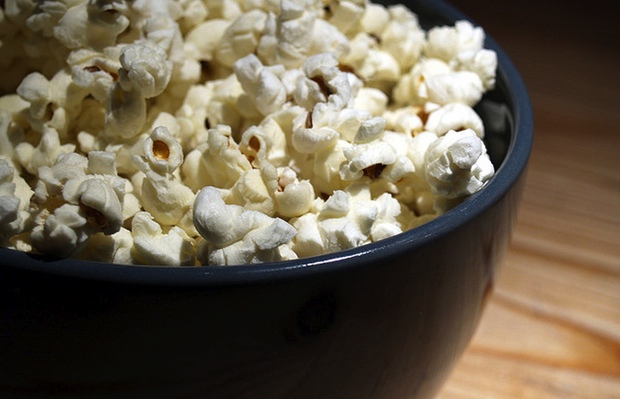Grab the kernels and start popping. New research presented at a meeting of the American Chemical Society suggests that popcorn contains more antioxidants than other healthy foods, including fruits, vegetables, nuts, and whole-grain tortilla chips.
Polyphenols, which may have therapeutic effects against diseases including cancer, are more concentrated in popcorn, since the snack only contains 4 percent of water, study leader Joe Vinson explained at the meeting. By comparison, water makes up 90 percent of fruits and vegetables, so the polyphenols they contain are greatly diluted.
Vinson’s team found that popcorn contains 300 milligrams per serving of polyphenols, while all fruits contain 160 milligrams per serving. Also, the amount of these antioxidants found in popcorn were up to 15 times greater than in whole-grain tortilla chips.
The hulls, those bits that annoyingly get stuck in our teeth, have the highest concentration of polyphenols and fiber. Vinson calls them “nutritional gold nuggets.”
But don’t feel too good about that $7 bag of buttery popcorn you munched your way through during the Hunger Games this weekend. Vinson says any of the health benefits that come from popcorn are canceled out once you pour on the fake butter or microwave a bag. The best way to prepare popcorn is by air-popping it.
“Microwave popcorn has twice as many calories as air-popped, and if you pop your own with oil, it [also] has twice as many calories as air-popped popcorn,” Vinson said.
Still, if you pop the corn yourself instead of microwaving, you’ll cut about 15 percent of the fat. Almost half of microwave popcorn is fat, says Vinson.
Also, while Vinson now calls popcorn “the perfect snack food,” he warns that no matter how much of it you chow down on, it still won’t give you the other essential nutrients and minerals that fruits and veggies provide.
For more information on the study, click here.


















